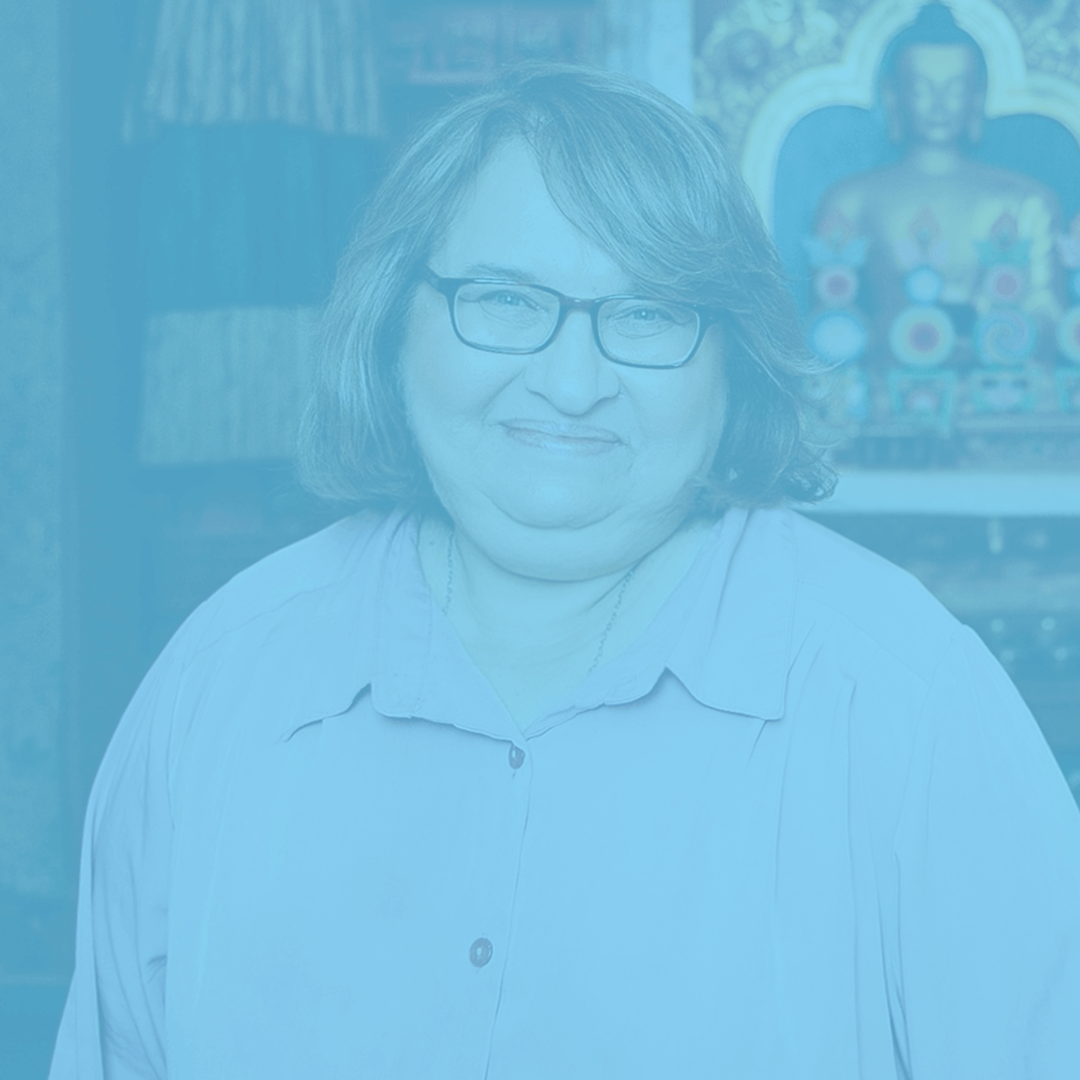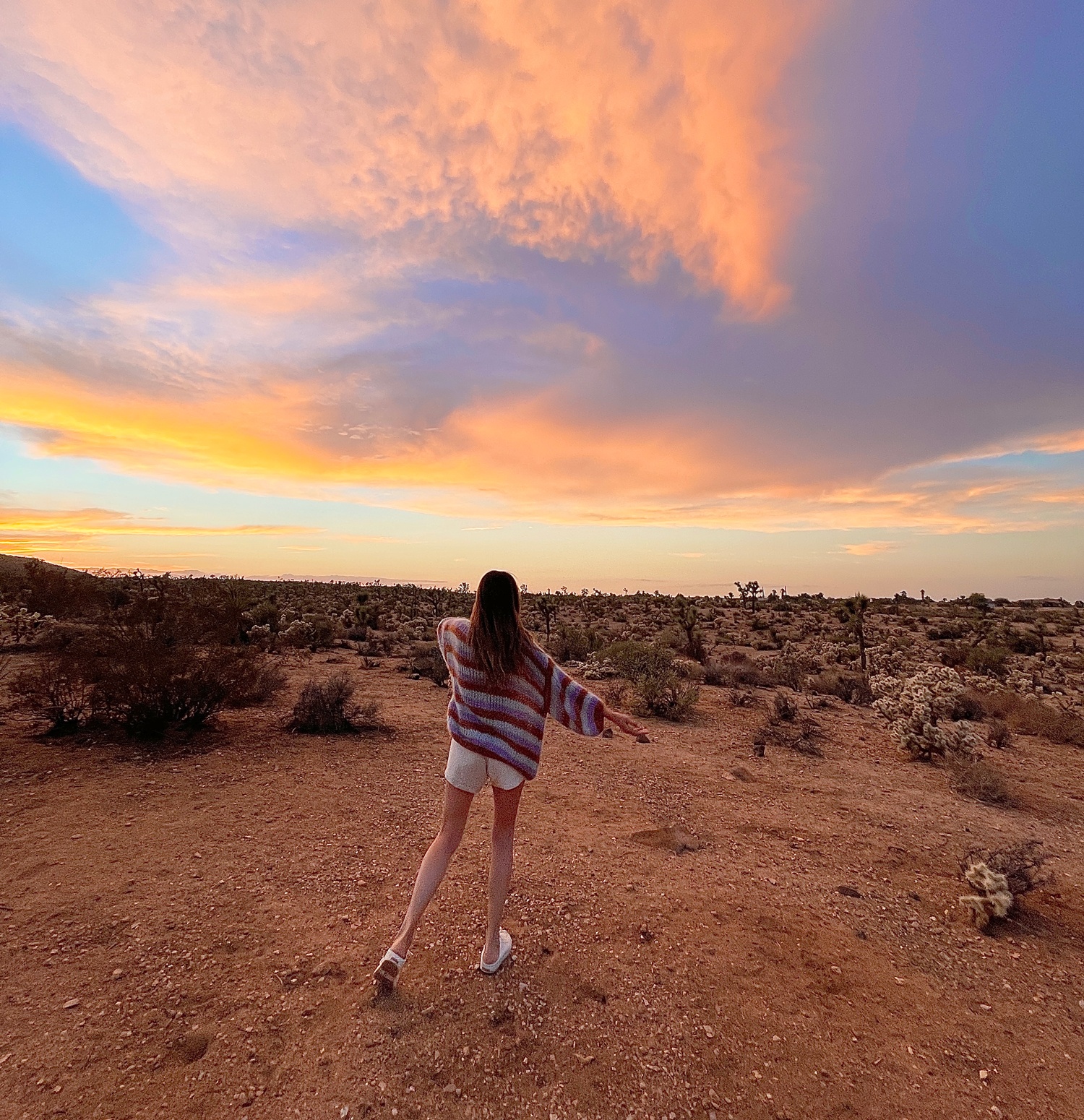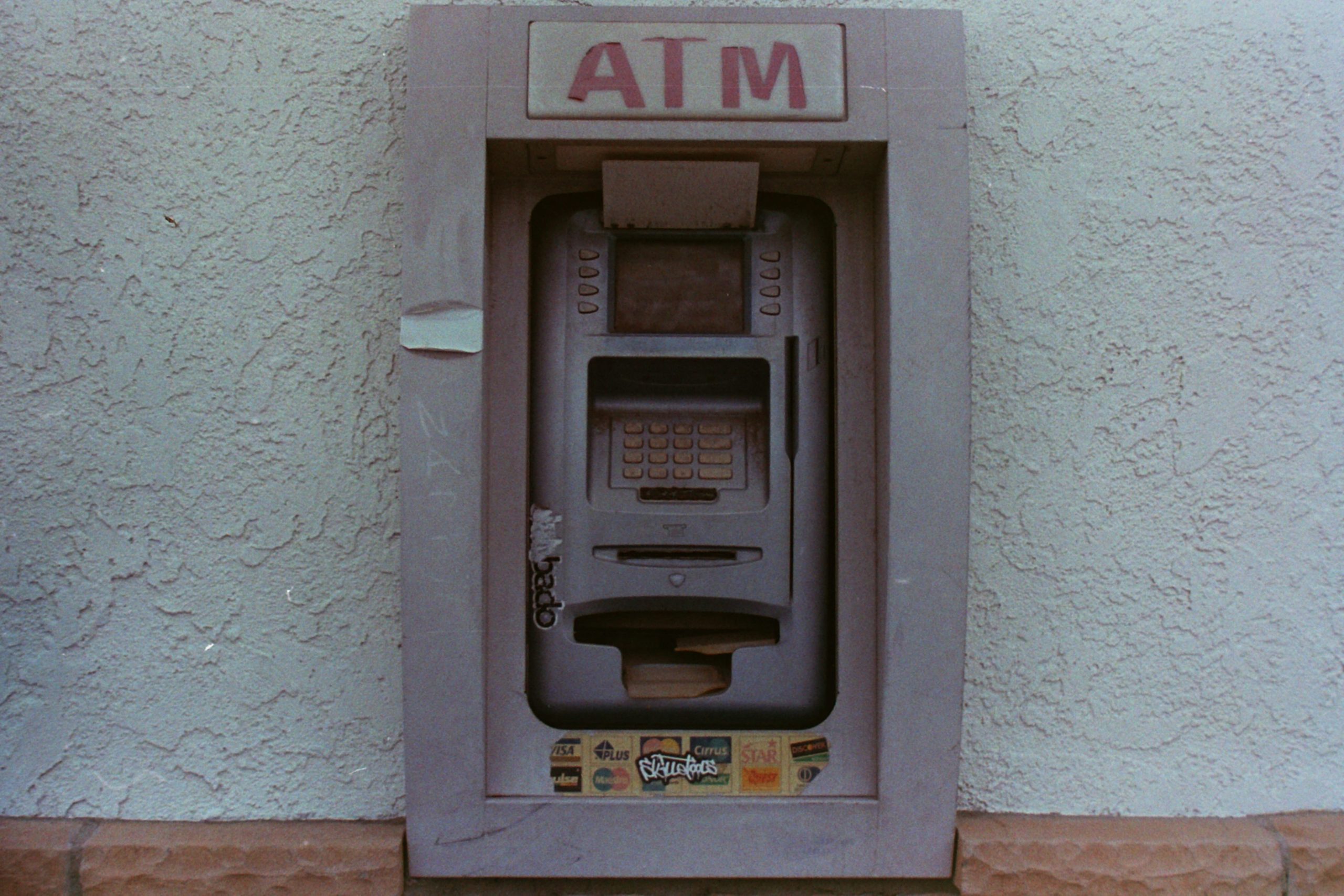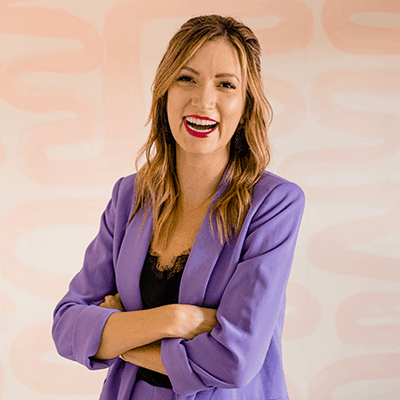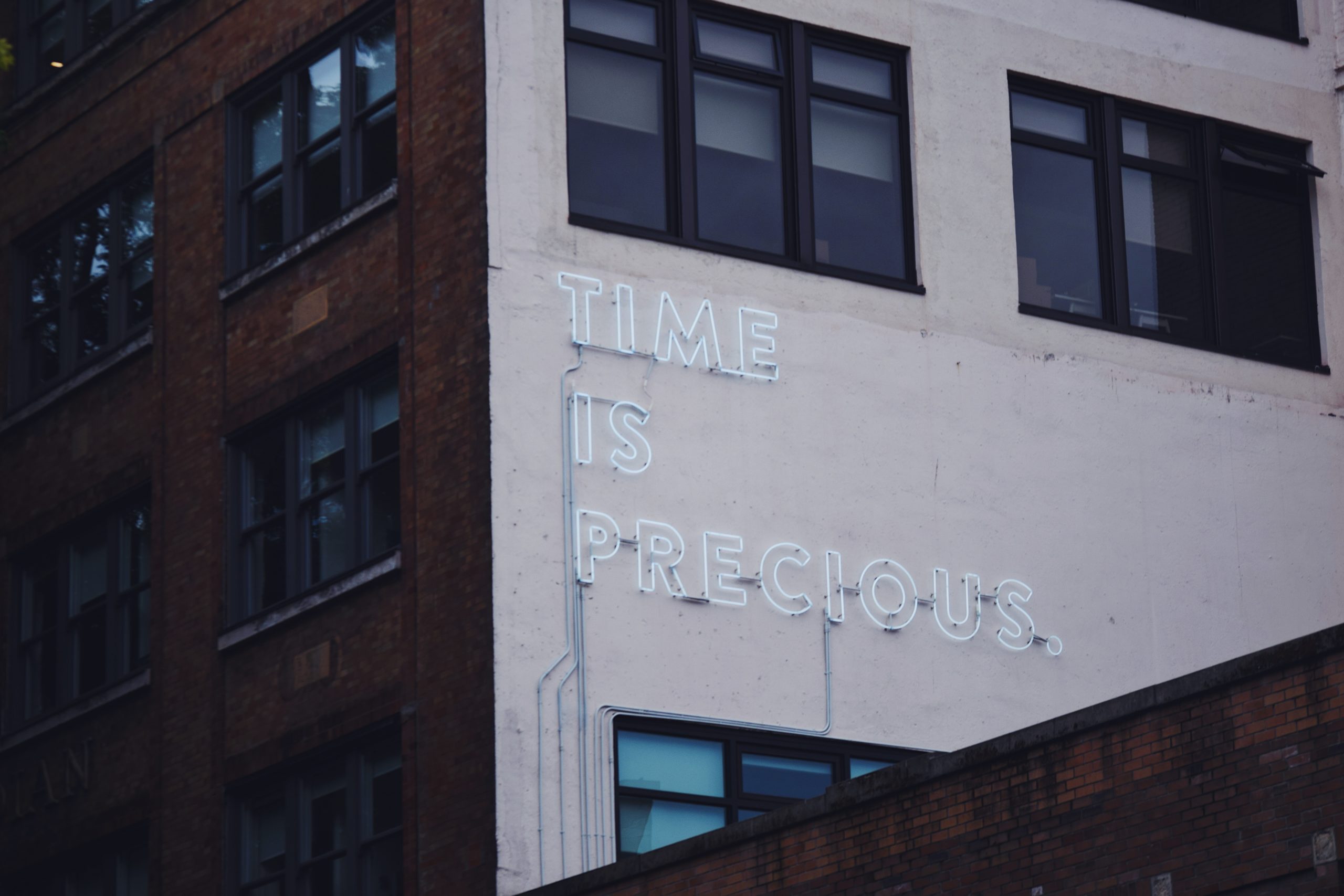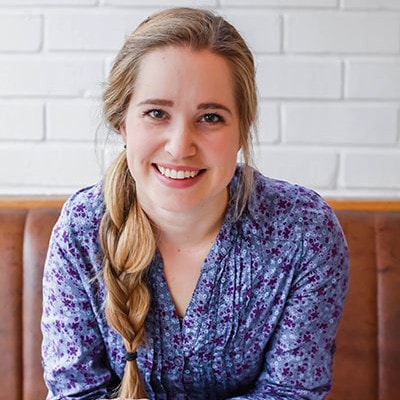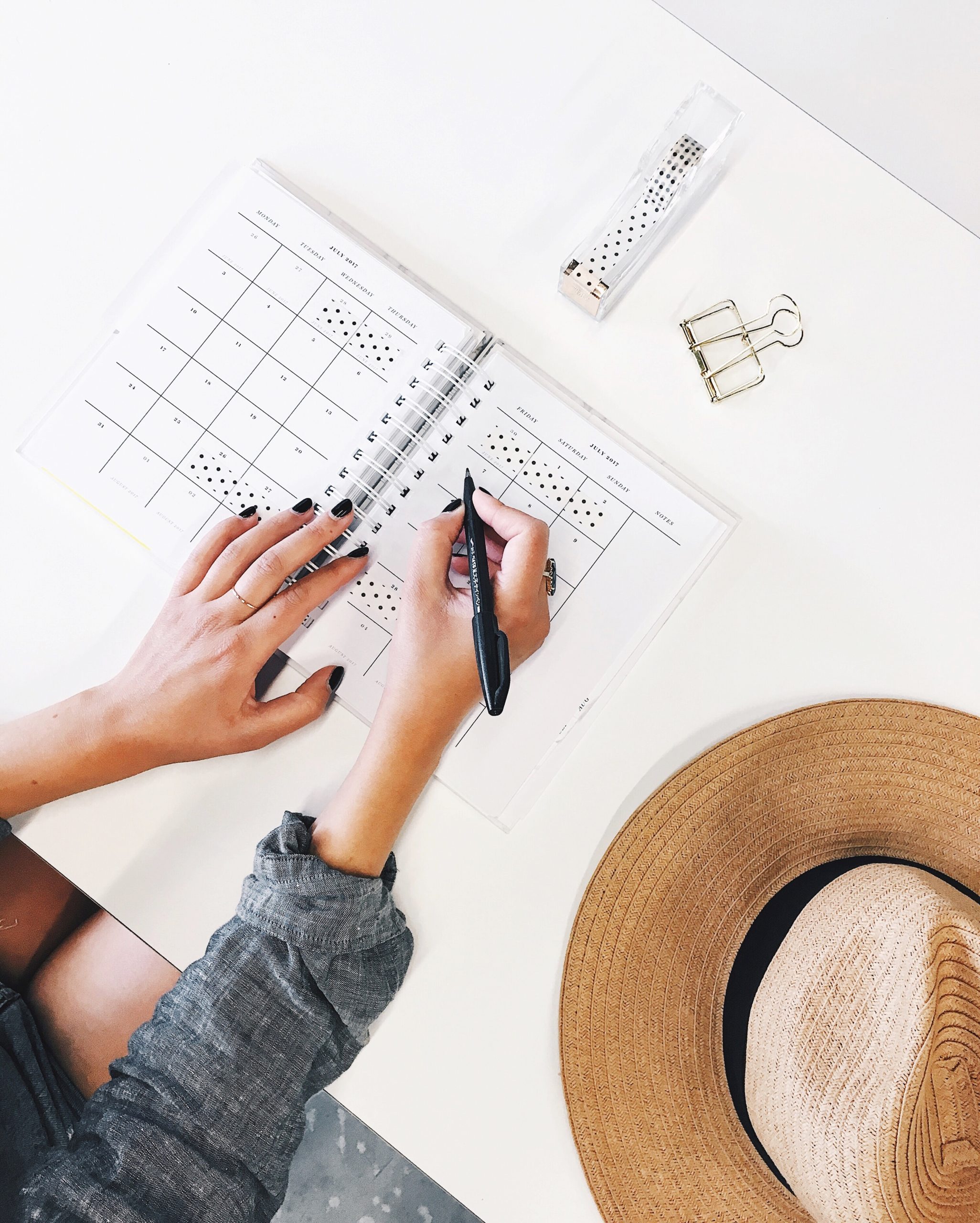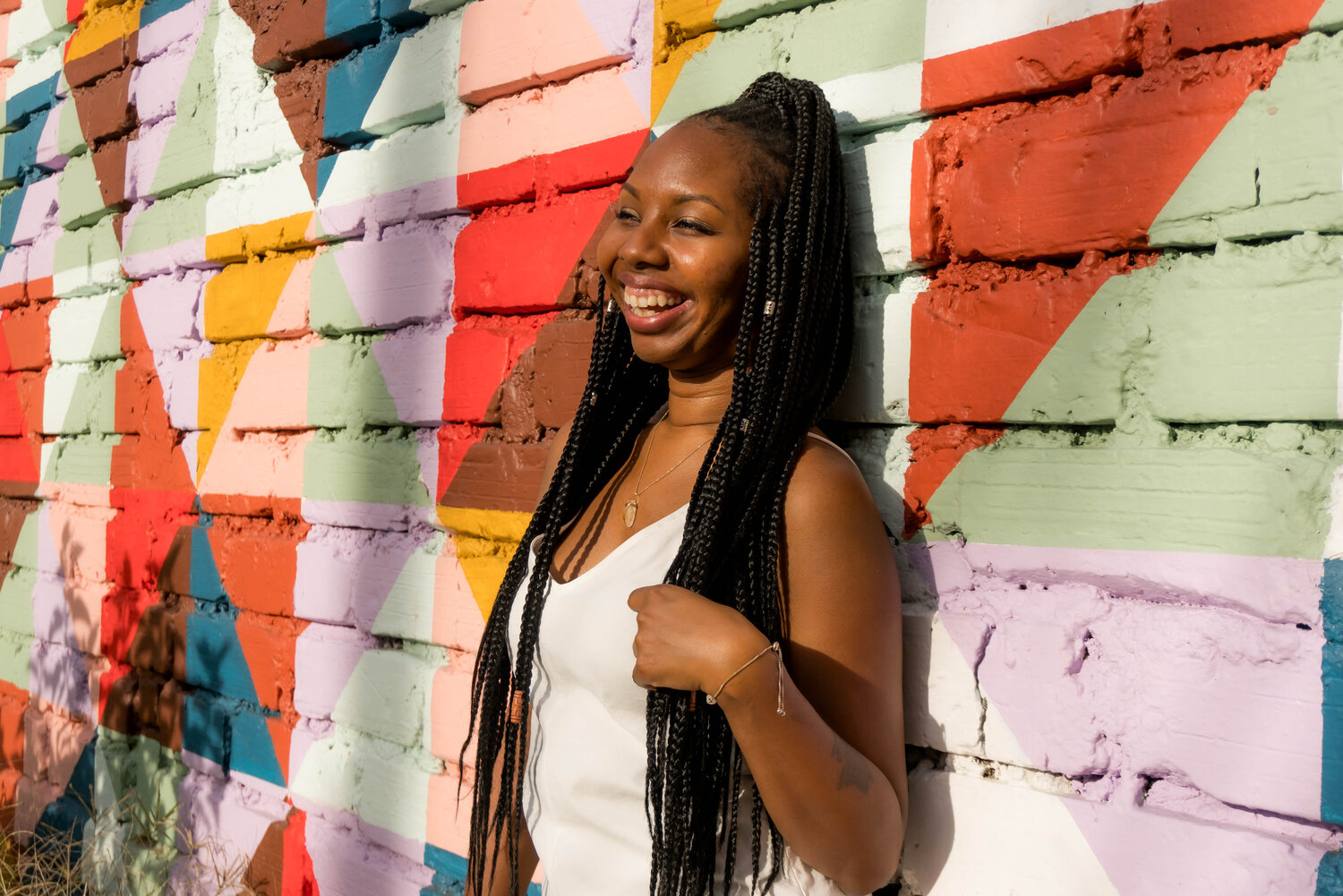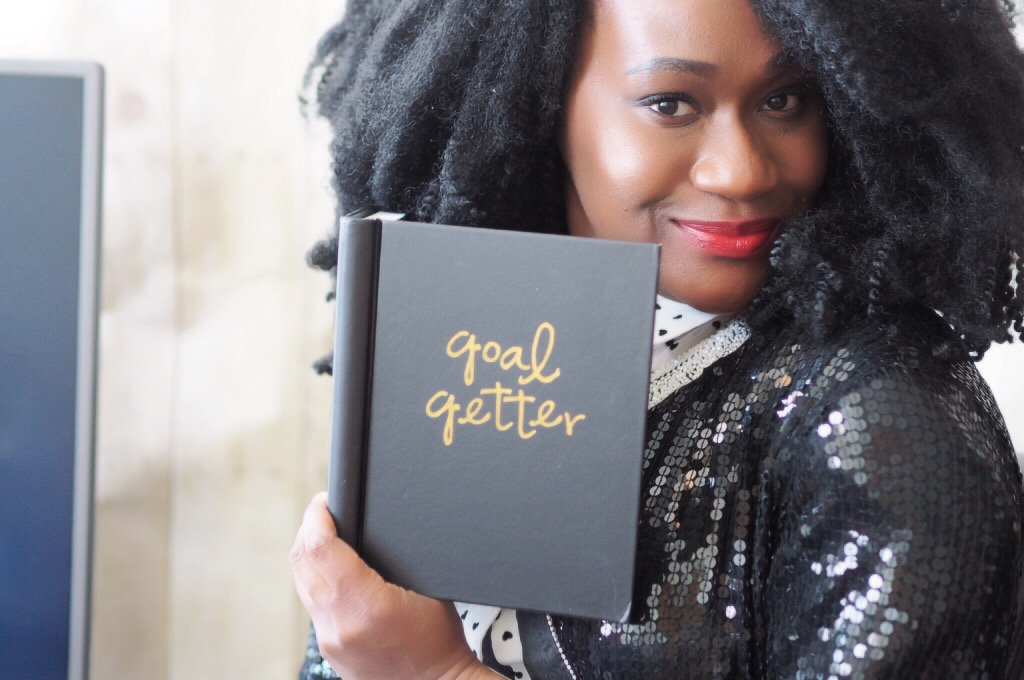Over the past few years, I’ve been diving into learning about meditation and mindfulness. And there was a name I kept hearing over and over again… Sharon Salzberg.
Turns out, Sharon played a crucial role in bringing meditation and mindfulness practices to the Western world, and into mainstream culture back in 1974, when she first began teaching. Today, Sharon is one of the most prominent figures in the field of meditation, a world-renowned teacher, and a New York Times bestselling author.
In this interview, she shares the story of how her traumatic past led her to look for tools to heal. We also talk about why most people think they’re “bad at meditation” – and why that belief is wrong… and how to approach meditation the correct way.
My favorite thing about Sharon is her focus on love – she emphasizes how meditation can help us love more deeply (and more often), both for ourselves and for everyone else in our lives. She even leads us in a 3-minute Lovingkindness meditation, which is a type of guided meditation based on Sharon’s belief that by practicing kindness with others and yourself, over and over again, this begins to become your natural way of approaching life.
Dive into the episode now, and discover how to add more peace, joy and love to your day in a matter of minutes!
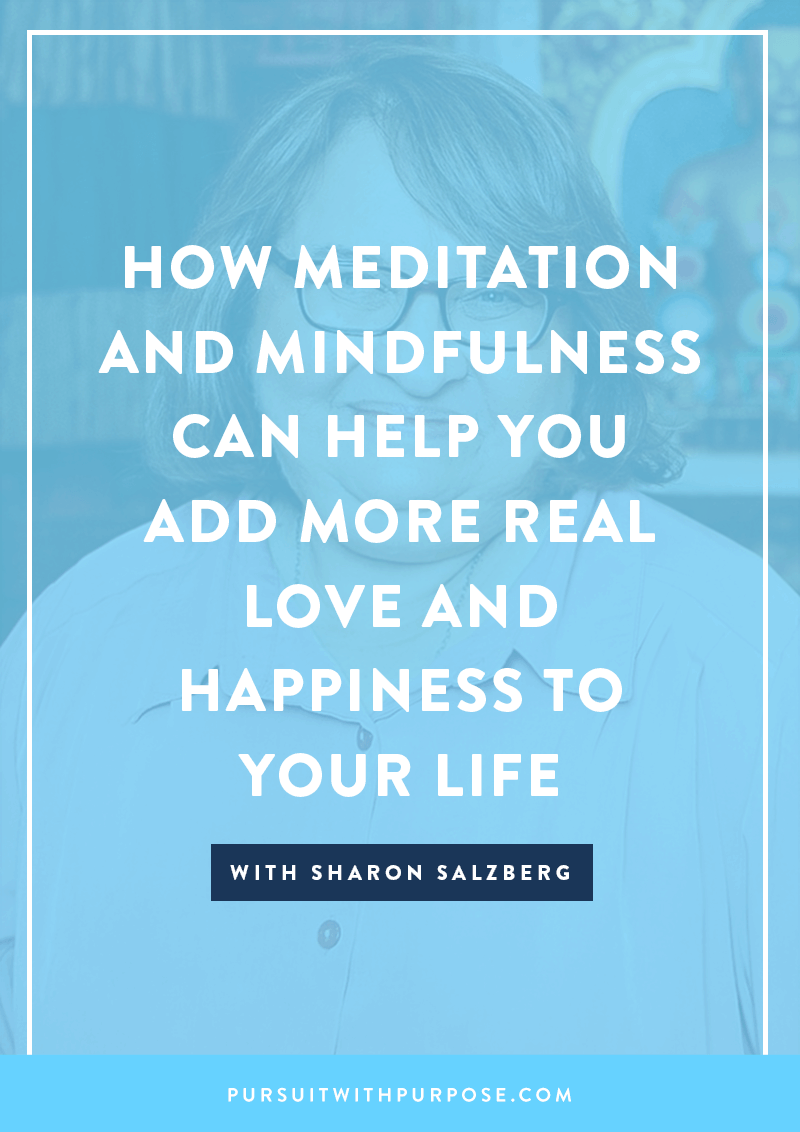
Check out the episode below:
In this episode, you’ll hear about things like…
- Why the big “mindfulness” trend right now is actually a deeply powerful approach to life (and what we can gain from starting our own mindfulness practice).
- How the way we allow ourselves to approach experiences (whether painful for pleasurable) is more important than the experience itself.
- The nitty gritty on silent meditation retreats (and how powerful and life-changing they can be).
- How to practice what Sharon calls Mindful Love in your daily life.
- A beautiful Lovingkindness Meditation, guided by Sharon – and how this type of meditation can affect people’s lives.
Some Questions I ask Sharon…
- When it comes to self-love, is there a mindfulness secret that can help us practice more love and compassion toward ourselves?
- I think people have this idea that meditation is really simple. I’ve found that meditation can actually bring up a lot of someone’s “stuff.” Do you think meditation is meant to be easy?
- When people are just starting out with meditation, what do you recommend they do?
Links from the interview:
- Sharon’s Website
- Real Love: The Art of Mindful Connection, by Sharon Salzberg
- Sharon’s Books
- Sharon’s Upcoming Events
- Meditation Retreats with the Insight Meditation Society
What do you think?
I’d love to hear your thoughts on this episode. Do you have a regular meditation practice?
Here’s how to subscribe + review
Want to be the first to know when new episodes are released? Click here to subscribe in iTunes!
Also, podcast reviews are pretty darn important to iTunes and the more reviews we receive, the more likely we’ll be able to get this podcast and message in front of more people (something about iTunes algorithms?). I’d be extremely grateful if you left a review right here letting me know your favorite part of this episode.
#PursuitWithPurpose
Loving the podcast? I encourage you to use the hashtag #PursuitWithPurpose to show our PWP tribe how you live your purpose everyday. Plus, you’ll get to sift through the hashtag to find other business owners who care about community and connectedness over competition and comparison. And I’ll be reposting some of my favorite images and stories, too. 🙂
Thank you for listening!
Transcript
Read the Interview Transcription HereHey, every day world changers. So when I started learning about meditation a couple years ago, today’s guest, Sharon Salzberg, was a name I kept hearing over and over and over again. That’s because she is one of the most prominent figures in the field of meditation. She’s also a world renowned teacher and a New York Times bestselling author of 10 different books. In fact, Sharon played a crucial role in bringing meditation and mindfulness practices to the West and into mainstream culture since 1974 when she first began teaching. So she’s a kind of a big deal. My favorite thing about Sharon is her focus on love and how meditation can help us love more deeply and more often, for both ourselves and everyone else in our lives. Now in this interview, we talk about Sharon’s traumatic past, which led her to look for tools to help her heal and eventually led her to meditation. We also talk about what mindfulness even is and why most people, who think they’re bad at meditation, are wrong, and of course how to do it the right way. What I love most about this episode are Sharon’s comments about how a certain type of meditation can help us to love ourselves and others more easily, more often.
If you stick around until the end, Sharon actually leads us in an exclusive three minute loving, kindness meditation, which will add more peace, joy and love to your day in a matter of minutes. Now if you love this episode as much as I do, then please take a screenshot or a photo and post it on Instagram stories. Now don’t forget to tag me too. My username is @melyssa_griffin. I know it’s a mouthful. As a podcaster, it’s hard to know what kind of impact your show has, so it would honestly make my day to see that you’re listening. It’s honestly what keeps the show going, is knowing that people are listening. Without that, there’s kind of no point to it. It doesn’t feel like there’s an impact to the show. So take a photo or a screenshot right now and share it on Instagram stories. I manage my own direct messages on Instagram, so I can’t wait to chat with you over there. Please go do that right now. Done? Sweet. Let’s dive in to today’s episode.
Melyssa Griffin: Hey, Sharon. Welcome to the show.
Sharon Salzberg: Thank you so much.
Melyssa Griffin: So excited to chat with you. Before we dig into all of your amazing teachings, I’d just love to learn a little bit more about your life growing up and how that led you on the path that you’re on now.
Sharon Salzberg: Well I had a very traumatic, confusing kind of childhood as many people do. I wrote a book many years ago called “Faith”, in which I was talking about my faith story, my life story. I calculated that by the time I left for college at age 16, which is when I went to college, I’d lived in 5 different family configurations, each of which had changed or ended through some kind of loss or devastating incident. I lived with my parents, so they got divorced when I was four. I lived with my mother and then she died when I was nine. And then it just sort of went on from there. So I went to college very early. It was in college that I took an Asian philosophy course as a sophomore, and really, it was a requirement, a philosophy requirement. As far as I can remember, I just looked at that schedule and I saw that course, and I thought, oh that’s convenient, that’s on a good day for me. Let me take it. Of course, the course completely changed my life. It really began, my interest in meditation really began there in that course.
Melyssa Griffin: How is that related to the traumas that you experienced growing up, this Buddhism or meditation that you were learning about?
Sharon Salzberg: Well there were a couple of things in that very philosophy course that I think pointed to that. One was the Buddhist saying right out loud what I knew very well, which is that there’s suffering in my life, but which no one around me ever disclosed or admitted or reaffirmed. And so I didn’t know what to do with all those feelings inside me. I felt so different. I felt so excluded from kind of the norm, and not realizing everybody goes through something. It’s not the same thing or same intensity or duration perhaps, but life has a lot of problems in it, in the sense of we don’t always get what we want or there’s loss, there’s change, and so on. And so I felt it kind of normalized that, just hearing that and I thought, oh that should be a reason we all try to help one another because we’re all vulnerable, we all might go through something really, really intense. And so that was usually liberating.
And then I heard in the process of that course, that there were these techniques, there were these methods that people used to actually get happier. Not that we can make life flatten out and have only nice things happen at all, but the way we hold things, even the way we hold pleasure and delight, like how distracted are we, how much do we take it in, how much do we allow ourselves to feel that, and how do we hold pain and sorrow you, is it I am different and I’m all alone and I’m cut off or can we have compassion for our souls in the sense of connection with others. And so I heard there were these methods. They were called meditation, and that you don’t have to believe anything, you don’t have to join anything or give yourself a new identity or reject anything else, but you had to practice. I was going to school in Buffalo, New York. I looked around Buffalo and I just did not see it anywhere. Now it’s really everywhere, but I just didn’t see it. So the university had an independent study program. If you created a project that they liked and they approved of, you could go anywhere, theoretically for a year, and then come back and do your final year. So I created a project. I said I want to go to India and study meditation and they approved it. So off I went. I left in the fall of 1970 and I began meditating in January of 1971.
Melyssa Griffin: Wow. At that time, was meditation even something that was talked about? Because this was like 50 years ago.
Sharon Salzberg: Almost, yeah. I know, shocking.
Melyssa Griffin: Yeah. Now meditation is so popular. It seems like this trending topic. Fifty years ago, was it something that anybody was really talking about at all? Was that kind of the first initiation into…?
Sharon Salzberg: Yeah, it was very early on. It was only, sort of like the Beatles had gone. And so it was very kind of woo-woo and esoteric and so strange. It was most notable when I came back from India, finished school, went back to India and I finally came back in 1974. I came back as a teacher because my own teacher had told me to teach. So it was very striking in those days. I’d be at a party or some social situation and people would say, “What do you do?”, because it’s what we ask people, it’s what we ask one another. I’d say, “I teach meditation.” And they would kind of go, “Oh, that’s so weird.” Occasionally, they’d say, “Did you meet the Beatles over there?” I’d say, “No, sadly they went when I was in high school and it’s a different tradition anyway.” And so for me, it’s been like a revolution, an awareness, an accessibility and interest. I was in a professional meeting the other night and people were saying, “We have to bring this more and more into our organization and more and more into our company.” I was laughing. I said I remember the days where if you were a doctor, you were a therapist, you were a CEO or something like that, and you had a meditation practice, you did not disclose it. That was like your little secret.
Melyssa Griffin: Right, interesting. What has that been like for you, having experienced meditation for so long, now seeing it become this like “oh I meditate, it’s totally normal” kind of thing?
Sharon Salzberg: That part’s exciting for me. I think it’s great. One of the things that’s more concerning for me is that, very commonly these days, if I’m introduced as a meditation teacher, somebody will respond by saying, “Oh I tried that once, I failed at it.” And then they’ll describe or I’ll ask what do you think was supposed to happen, that makes you think you failed at it. Usually people would describe something like I couldn’t make my mind totally quiet, I couldn’t block out all thoughts, I couldn’t have a state of bliss, I couldn’t keep anxiety from arising. We don’t believe ever that you can fail at it, because far more important than the actual experience that you’re having, is how you’re relating to that experience. If the experience is painful, are we adding on to it with anticipation, like what’s it going to feel like tomorrow, what’s it going to feel like next week, are we bitter or are we compassionate, do we feel that sense of connection or do we feel isolation. That’s what’s really crucial. If the experience is very pleasurable and wonderful, are we actually allowing it in? Sometimes we feel like oh I don’t deserve that and we kind of just sort of push away the delight and the wonder. That doesn’t make for a very happy life either. Far more important than what’s coming up, is how we are relating to what’s coming up. That’s the whole training. You can’t have the wrong experience.
Melyssa Griffin: Yeah, that’s really interesting. I definitely hear that a lot, where people think that they’re doing it wrong or they can’t stop their thoughts, so they think well I just am not cut out for. In your opinion and your teachings, what is meditation? What do we stand to gain from a mindfulness practice?
Sharon Salzberg: I think of meditation—and this was—my very first teachers would say this, as a kind of skills training. That’s why it’s not tied to a belief system necessarily or a worldview. It’s first of all, training and concentration, so that if we, as most of us are, kind of distracted or all over the place, unsettled and centered in the practice of—it’s like training attention to be more stable and more steady, more steadfast, not in a tight, rigid way, but really in that sense of centeredness. So that’s like the first tool, it’s the first training. And then mindfulness, which is considered a skill all on its own, is developing awareness where the kinds of habits, kinds of mental habits that might usually come up, might come up but don’t have to govern us.
Melyssa Griffin: Right. So like the patterns or those beliefs that maybe chime in a lot, that keep us small, it kind of helps us to see those for what they are instead of letting us dictate our lives. Yeah, that’s really powerful.
Sharon Salzberg: It’s actually even a training in compassion, beginning with self-compassion because I actually believe that even if it’s never voiced, even if it’s never described, we’re actually developing self-compassion all along the way because you can’t even do the most elementary or foundational exercise in meditation, which would be returning your attention once you’ve been distracted without kind of secretly developing some self-compassion. Because the habit of judgment is so strong that more commonly what would happen would be, we realize we’ve been distracted and we spend like 40 minutes blaming ourselves for having been distracted, but it’s actually being able to let go and begin again, return to whatever object we’ve chosen to be aware of. It’s sneaky but we’re actually learning to be kinder to ourselves.
Melyssa Griffin: Yeah. That’s really beautiful. So I have a question for you. I’ve heard of these silent meditation retreats, where people spend often more than a week meditating in silence. That’s my understanding. Can you tell us a little bit more about these types of retreats and what people can gain from them?
Sharon Salzberg: Sure. It’s a little bit of a funny question for me also, because when I first started the only form one could really learn meditation in, was an intensive retreat which was usually silent. Nowadays of course, there are classes, and there are apps, and there are books, and there’s tapes, and there’s whatever. I co-founded a retreat center in 1976, called The Insight Meditation Society. It is an intensive retreat center. So people come up for two days, three days, seven days, nine days, three months. We have one retreat that’s three months. You can do half of it, six weeks.
Melyssa Griffin: Is that also silent*?
Sharon Salzberg: Yes. I mean you always have teacher contact, so you’re not perfectly silent, or you can speak to someone on the staff if you feel a need, but you’re not speaking over meals. You’re not telling people what you’re going through unless they happen to hear it in a group. There’s always teacher contact, you’re not abandoned. Yes. It’s mostly when people come for the first time, the thing they’re most concerned about is the silence. People show up and they say I don’t know if I can be silent for three days or nine days, or my partner doesn’t think I can be silent. Once someone came and said they’re doing a betting pool in my office because they don’t think I can be silent. But almost always at the end, it’s like the single most beautiful of being there, because it’s like for once in our lives, we don’t have to present ourselves as special or funny or interesting. It’s like we can just be fully who we are in our own experience. It’s such a relief really. Even that question, “what do you do”, which is such a normal kind of way of greeting somebody or meeting somebody, and it’s like wow. Everybody at my center gets a chore, mostly everybody, whether it’s like chopping vegetables or something that will take about half an hour or 40 minutes a day. After a while of being there, it’s like you forget that you’re a writer, you think of yourself as a veggie chopper. It’s just a world in itself.
Melyssa Griffin: That’s so interesting. What kind of breakthroughs or what do people gain that maybe extends beyond the silent meditation retreats, that they apply to their lives after that?
Sharon Salzberg: There’s a tremendous amount. It’s an automatic process. It’s like not usually so deliberative, but things have changed within you. So for example, if you do that fundamental exercise of say resting your attention on the feeling of the breath, realizing your attention has wandered, letting go of the distraction and coming back, it’s what one of my teachers once called exercising the letting go muscle. We’re really practicing the coming back. It’s resilience training. And then that I think is, even though it’s like great in lesson one, it’s one of the greatest gifts that meditation has ever given me, because what I say at this stage of my life is that nothing in life is a straight shot. We’re beginning again over and over and over again every single day, maybe every single hour. We have a goal, we forget it. We have to remind ourselves. We’re walking on some path we fall down and we have to get up or let others help us up, and we start over, or something happens and we have to—we need a course correction. We need that much flexibility in addressing our goal or task, whatever it is. And so we’re always doing that. And so say you’re in some situation, you’re talking to a stranger, you’re not really listening (as we usually don’t) and you’re thinking about your email and what you need to do. It’s exactly the same process, you realize you’re just a million miles away. It doesn’t feel good. It feels quite uncomfortable. You do exactly what you do in the meditation, you just gather your attention and you arrive, and there you are. It is almost like muscle training.
Melyssa Griffin: Right. It’s like this training of bringing yourself back to the present. It’s my understanding of what I’ve gained from meditation too. It’s like when I’m not in the present, is when I lean more into anxiety or fear, but when I’m in the present, just in this moment, it’s like oh everything’s fine, I’m fine, life is great.
Sharon Salzberg: That’s right. I have what I need.
Melyssa Griffin: Exactly. Yeah, it’s really powerful, because so often, at least for me, my mind is either going to the future or the past, and that’s what brings me pain. Meditation helps a lot for that, for me at least.
Sharon Salzberg: It’s true for everybody. They say that often our minds go to the past and to something where we now have some regret. It’s not to think of how to make amends or for lessons learned, we just go over it and over it and over and over it, and made miserable by that, rumination. And our minds jump to the future and we create a scenario that has not happened, that may never happen, and we’re filled with anxiety about that. What if my plane is late? Then I’m going to miss my connection and then I’m sure it’ll probably be raining. I won’t be able to get a cab. It’s just like wait a minute, you’re not even at the airport… It’s so unpleasant to deal with all that. It’s hard enough to deal with what is happening and going wrong. And so just seeing that and the huge amount of energy we expend, it’s like we just throw it away. And so part of the process of that initial skill of concentration, is gathering that energy. We find it’s really returned to us and we have the energy to pursue something or have an adventure or seek to learn something. It’s very different.
Melyssa Griffin: That’s a really interesting point about how meditation can increase your energy because you’re not using it on worry or all these things that are not happening right now. Have you found that it helps with things like fatigue or tiredness?
Sharon Salzberg: Yeah, well very much so. Another aspect, often to tiredness, not always because it’s so complex, but it’s just kind of sheer boredom because we’re not really connected to our experience. We’re kind of there and kind of thinking about something else or we’re endlessly multitasking, and so we’re not really in contact with the feeling of the warmth of that teacup and the smell of the tea and the taste of the tea. And so we’re always seeking something else. It’s very restless. It’s a very agitated state. And so if we can just land where we are, we would feel more energy because we would feel connected to what is actually going on.
Melyssa Griffin: Wow. Yeah, that’s a great point. So I want to talk a little bit about a book that you published last year called, “Real Love: The Art of Mindful Connection”. I love the title. What inspired you to write a book about love?
Sharon Salzberg: Well, there is a particular meditation practice, kind of a sister practice to the mindfulness practice which is called loving kindness. I’ve been teaching that for a very long time. Love and kindness is the term that’s commonly used in translation from Pali, the language of the original Buddhist text. The word is metta. I’ve had scholars and translators say to me, “Just say love, stop being so cutesy. What does loving kindness mean? It’s a little archaic. Just say love.” Love is such a daunting term. What do we mean by love? We mean so many different things, from really a medium of exchange like I will love you as long as you love me in return or I will love myself as long as I never make a mistake, or all the way to I love the notebook I see on your bookshelf behind your head. I love that. I finally came to, is actually interestingly enough, is partly this one line in a movie that inspired me to write that book and use the word love instead of loving kindness. The movie is called “Dan in Real Life”. It’s about 11 or 12 years old. A character in the movie says this, he says, “Love is not a feeling, it’s an ability.” Love is not a feeling, it’s an ability. I love that. And of course, it is a feeling as well. It’s a feeling we tend to yearn for, want perhaps more than anything. I thought about love as an ability because that really resonated with some of the experiences I had had during intensive meditation, like in Burma in the 80s when I was doing intensive loving kindness practice. I realized that prior to that time, I thought of love almost like a kind of commodity and it was in someone else’s hands. They could give it to me, in which case, I would have love, or they could take it away from me, in which case, I’d have nothing. I would just be bereft in the image that kept coming to me, was the UPS person standing on my doorstep with this package and taking a look at the address and say “no I don’t think so” and going somewhere else. I’m going, “Wait a minute.” Then what will I have? I’ll have nothing. If love is an ability, it means it’s inside us. It’s ours. Other people, of course, may ignite it and inspired it and threaten it, but it’s ours ultimately. That was very powerful for me. And so I thought that would be kind of an amazing thing to explore.
Melyssa Griffin: Wow, that’s beautiful. I love that. Do you feel like everybody at their core is love?
Sharon Salzberg: I think we have a capacity for love. I know many traditions would at core we will find a basic goodness. I think that’s a bridge too far for a lot of people given the way we could behave, and families and societies and neighborhoods, anything. I think the capacity genuinely is there. I do believe it’s never destroyed. It may be covered over, it often is and hard to find and hard to trust. I do absolutely believe it’s there within us no matter what we go through as a person, no matter what that story becomes.
Melyssa Griffin: Yeah. What about self-love? So is there, do you think a mindfulness secret or practice that can help us to love ourselves or have more compassion towards ourselves?
Sharon Salzberg: I think there are many. One is just like the exercise I was describing, where we’re in a situation where we want to be able to build resilience, we want to begin again and again and again. I think you pretty quickly come to understand, even if you don’t have the words for it, the vocabulary for it, that a harsh, punitive environment internally or externally, is just going to break us in the end. I mean I understand studies say that that kind of environment internally or externally, very judgmental, very harsh will help spike performance of any kind, but briefly and then we crash. That makes sense to have a kind of sustained effort toward change or learning a new habit or whatever it is. We’re going to fall down again and again and again, and we need to be able to pick ourselves up and have some kind of story. So I think it works that way. I also think learning that our thoughts come and go and that we can have—we don’t have to take every thought to heart and believe it and build a whole self-image on it. One of the exercises I suggest in the book, for example, is if you have a very persistent kind of nasty, critical voice within, like very harsh or very—not giving you really useful information, but just kind of carping. It’s persistent. It gets familiar. Give it a name, maybe give it a wardrobe. Give it a persona because everything isn’t going to depend on how you relate to it. So with apologies to Lucy’s of the world, I name my inner critic, Lucy, based on the character in the Peanuts’ comic strip.
I moved into a house that someone had rented for a number of us to do a retreat in. In the bedroom, someone had left a cartoon on the desk from the Peanuts’ comic strip. In the first frame, Lucy is talking to Charlie Brown and says, “Oh you know, Charlie Brown, what your problem is—the problem with you is that you’re you.” And then in the second frame, poor Charlie Brown says, “What in the world can I do about that?” And then in the third and final frame, Lucy says, “I don’t pretend to be able to give advice. I merely point out the problem.” Somehow, whenever I was walking by that desk, my eye would fall right on that line, “the problem with you is that you’re you”, because that Lucy voice had been so dominant in my earlier life. I also saw that my meditation practice had given me some tools for approaching Lucy. So in fact, it happened very quickly after I saw the cartoon. Something great happened for me. My very first thought was it’s never going to happen again. I met that with “hi, Lucy”. My favorite form of that was “chill out, Lucy”. So mindfulness, almost as a definition of mindfulness, would mean not getting into “you’re right, Lucy”, “you’re always right”. Just falling into it, no space. It also wouldn’t mean being ashamed and afraid and freaked out, like oh my God, Lucy is still here. I’ve been meditating for 2, 3, 4, 5, 10, 20, 30, 40 years. I spent all that money in therapy and Lucy is still here. I’m such a loser. It’s not like that. It’s like “hi, Lucy”. So there’s presence, there’s balance, there’s awareness, there’s even a little tenderness, like “hey, Lucy, have a seat”. Chill, just chill. We learn that. That’s like a skill to treat our thoughts so that we recognize our awareness is actually more powerful than the thoughts and feelings that are coming and going. It’s up to us what we take to heart and what we build on, what we believe and what we just let go of.
Melyssa Griffin: Right. That’s such a powerful distinction too, of allowing Lucy to come in even if you’ve been meditating for 20 years, just knowing that that’s going to happen. It’s not that all the bad stuff is shut out. I was actually talking to a friend a few days ago, and he’s been practicing meditation pretty consistently for the past three years. We were talking about this situation where he felt like he responded with a lot of ego. He was kind of berating himself and saying, “I’ve been practicing meditation for so long. Why does this still happen?” I think what you just said is the answer, it’s not trying to get rid of every challenging scenario, it’s just inviting it in, letting it take a seat and then letting it leave when it’s finished. Yeah, I like that. So I’ve noticed for my own meditation practice, that sometimes it brings up stuff. It’s not an easy thing to do all the time, which maybe it seems like from the outside it’s just oh you’re breathing, it’s super simple. Sometimes I notice that it brings me to almost this dark place. Do you find that in meditation?
Sharon Salzberg: Yes. I think that’s totally normal, because really it’s everything. I used to use the example of meditation being like going into this old attic room and turning on the light. What we see is everything. We see these beautiful, neglected treasures. We can hardly believe such a beautiful thing exists in our very own attic. We see these dusty, neglected corners and we think oh we better clean that up. Maybe we see some objects and we think oh I should have gotten rid of that long ago. I can’t believe that’s still here. We see everything. Remember the power or the accomplishment or the meditation is not in what we’re looking at, but how we’re looking, how much presence, how much balance, how much love are we bringing to bear in what we’re seeing. And so then it’s a process. Sometimes things come up that we just don’t have the energy for. It’s just like we’re not going to be balanced with them, we’re going to be gritting our teeth and waiting for the contouring, whether it’s the app or whatever. And then maybe it’s time to do something else, take a walk or do a kind of meditation that’s a little lighter. That’s fine, but to whatever extent we do feel the energy and we feel interest and we feel a kind of balance in looking at what’s coming up, then that is incredibly strengthening, because I think sometimes of American society and how much it’s designed so that we never feel bored. We never feel whatever from the moment we’re born till the moment we die. And yet if we just sat and allowed ourselves to feel bored, we might avoid a lot of behavior that is actually kind of destructive. I’m also intrigued by—I don’t know the exact statistics at the moment, but some phenomenal amount of people, first in America and more recently in England, in surveys have described themselves as lonely which is very interesting, whether they’re in relationships or not. Just feeling disconnected, feeling lonely. If we want to connect more fully, it means connecting to everything; the beautiful, wonderful experiences and the really difficult and more painful experiences.
Melyssa Griffin: That’s a great point. I feel like there’s almost this culture now of positivity, where don’t be sad, don’t be angry, just be your happiest, brightest self all the time. That’s such a great point that you just made of that’s making us lonely because we’re not honoring all sides of ourselves and we’re not able to relate to all sides of other people as well. Yeah, that’s really powerful. I want to talk a little bit more about boredom, what you mentioned. Do you think that we should be trying to incorporate more boredom into our lives, of just letting our minds wander or just not having things planned? What do you think about that?
Sharon Salzberg: Well that’s kind of interesting. I mean, often when we talk about boredom, we talk about it as kind of more a lack of attention, and usually it’s a half-hearted attention and we’re bored. Oh, it’s just a bread*. It’s just an apple. I’ve eaten a billion apples, not going to pay any attention. If we take them as a mundane, repetitive, routine object, and actually pay more full attention to it, we feel connected, but usually we blame the object. There’s a kind of joke almost that we usually say, is if you’re eating an apple and you’re not really tasting it, you’re not really smelling it, you’re not really feeling the texture of it, but you’re just thinking about the email you need to write or the argument you think you’re going to have with somebody, and then you just feel very dissatisfied, usually we blame the apple. We don’t look at the quality of our awareness as playing any role in that dissatisfaction or that boredom. So then you think oh I better get an orange and then I’ll be happy. You go out and you get an orange, maybe you eat it in exactly the same way you ate the apple, and still not very fulfilling. Then you think, my life is so prosaic, it’s ordinary. I need a mango, that’s what I need. And so depending on where you are, getting a mango is not always that easy to know. You get that mango and you eat it, but you eat it in exactly the same way you ate all the other things, and it’s still not very fulfilling. So we’re just kind of endlessly seeking and feeling it’s not enough, I don’t have enough. It’s this combination of dissatisfaction and boredom. What we really need to do is shift our attention, so that we are fully present to the best of our ability with whatever we’re doing. And then often the boredom will just leave.
Melyssa Griffin: It seems like such a beautiful metaphor analogy for all of life, where we chase after—and I’m sure that this is what you were alluding to, but we chase after a job or an achievement, we reach it and we’re like oh, that actually didn’t bring me the happiness I thought it was going to bring. We just keep going and going. What you’re really saying is enjoy the journey, be aware and present, and appreciate that part of it too, not just the apple or the orange. I love that. I love that so much. So when people are starting out with meditation, what do you recommend that they do when they’re getting started?
Sharon Salzberg: Well I think I’d go back to what was most helpful for me. What helps me even now is some sense of structure. And so I would usually say a reasonable commitment—not like I’m going to set 8 hours a day and 12 on the weekend, it’s not going to happen, but 5 minutes to 10 minutes, maybe 15 minutes a day in a formal, dedicated period for a certain period of time, 2 weeks, a week if 2 weeks is unbearable, maybe a month if you can do it, and every day. Because for me, I know I have the kind of mind that every day is easier. If I were to say okay, I’m going to practice three times a week, it would be Monday and I say oh let me start Wednesday, three Wednesday—let me say three times on Saturday. That will take care of it. Every day, it’s every day. That’s why it needs to be reasonable. And then I think it’s just really important whether it’s through an app or a class or whatever, that you have some idea of what to expect, just so you can be kinder to yourself. If you go in and think, well a good meditator has no thoughts and you have a billion thoughts, it’s going to be so much suffering. It doesn’t need to be because that premise was not true. You can have a billion thoughts and a billion nasty thoughts, but you might be developing a very different relationship to them. So you’re not believing them so completely, so there’s more space. You have a greater ability to let go and that’s good meditation to have some understanding of what you expect, and then just do it.
People, they use apps or you can use an alarm clock if you want to set the time so that you don’t have to worry what time is it. Am I over sitting? You also might explore. It doesn’t have to be sitting, it could be walking meditation, it could be lying down, I think. Some dedicated period where your intention is just try to deepen awareness and compassion for that few minutes, and do it for the week or the two weeks or whatever. And then at the end of that, of course, you do want to assess is this valuable, don’t want to continue. The place to look is really your life, because you may not get fireworks in that 10 minute period a day and you may not have bliss and just some overriding emotion, but you will be different. You’ll be different with yourself when you’ve made a mistake and you’ll be different when you meet a stranger. You’ll be different in a time adversity. You’ll be different when Lucy comes to visit. You’ll be different when something delightful happens and you’ll allow yourself to experience it. So that’s the place you’ll really see the change.
Melyssa Griffin: Yeah. Wow. So what can a consistent meditation practice really bring to our lives? Is it that we are more happy, more open? What kind of positive benefits and how long do you feel like it really takes to start seeing significant changes in your life?
Sharon Salzberg: I don’t think it takes long if you remember to look at your life and not at the formal period of practice. I’ll tell you a story about that in a minute. It brings all of that openness, clarity. It’s not uncommon, for example, to be kind of angry and not even know you’re angry, and to go off to the computer and type out an email and press send. And then maybe two hours later, you go, “Whoops, I guess that was said with some hostility. I don’t know if I’m actually going to get what I want.” And then like the olden days of email, which is a very funny thing to say, if your platform was AOL and you were sending an AOL person that message and they hadn’t read it yet, there was this magic button you could press on your computer, called unsend. Press unsend, it’s like something in your computer would reach out to theirs and just pull it back and it’s like it never was. I once unsent a message to somebody. It wasn’t nasty, but I just thought better of it. She wrote to me right away and she said, “The weirdest thing just happened. I was looking at my screen and there was an email from you and it just disappeared.” I wrote back and I said, “That’s so strange.” Life doesn’t give us that many unsend button, so to be in touch with ourselves, to know what we’re feeling, to not be overcome by every feeling, to realize we have choice. So I want to send that email, maybe I want to breathe a bit, send it later or read it again. So we get empowered by meditation in that way. There’s a lot more spaciousness. It’s like if you’re tending toward anxiety, it’s a lot of stories you tell yourself, just like I started earlier. I feel like my plane is going to be late. I’m going to be stranded in Detroit and it’s going to be raining. That’s a lot of stuff. So imagine that just kind smoothing out. It has a very beautiful effect in our life.
Melyssa Griffin: Yeah. What should we almost work up to you with meditation? You said starting with 5, 10, maybe 15 minutes.
Sharon Salzberg: Yeah. I mean even if you sit 20 minutes a day or some people say 20 minutes twice a day, because it’s two things, that’s the formal period and then there’s what we call short moments many times. That’s just a kind of resolve to, just for a moment to take a breath in. Maybe the most famous recommendation is don’t pick up your phone on the first ring. Let it ring three times and breathe, and then you pick it up. Maybe get in the habit of writing out that email and then taking a breath and reading it again, deciding if you want to send it. I’ve many friends who work in the corporate world or different government organizations, and where there’s a kind of agreement, they’ll start every meeting with just a minute of silence. So people can kind of go within and remember what they care about and things like that, or in terms of loving kindness, where you might think of different people and silently wish them well like may you be happy, may you be peaceful. People say well sometimes before a big meeting, we’re all sitting around the conference table, let’s just look at everyone one by one and silently do that, something like that. Just nothing that takes a tremendous amount of time each time you do it. Just short moments many times a day will also really change your day.
Melyssa Griffin: Yeah, I can see how powerful that would be, just to have more presence or seem so detached, disconnected a lot of the time. I know that you are one of the most popular teachers on loving kindness meditation. That’s something that you’re really passionate about. What is loving kindness meditation for anyone who hasn’t heard of this type of meditation?
Sharon Salzberg: The examples I’ve been using have largely been around the breath, settling your tension in the feeling of the breath. And then when you realize your attention has wandered, just letting go gently and coming back. The loving kindness meditation, rather than using something like the breath, we use the silent repetition of certain phrases. The phrases are the conduit for paying attention differently. It’s like generosity of the spirit. With ourselves, for example, maybe we are in the habit, say at the end of the day, of evaluating our day; how did I do today. Maybe we are in the habit of pretty well only remembering the mistakes we made and the things we did wrong and what didn’t really work, so much so that it’s almost an exclusive focus. And so we kind of want to stretch beyond that through wishing ourselves well; may I be happy, may I be peaceful. It’s gift giving. It’s offering. There’s very much the spirit of that practice. Classically, you begin with yourself, but then you think of others; maybe somebody who’s really helped you, like a mentor, somebody who has inspired you. You use the phrases with them, or a friend you know who’s struggling right now, you use the phrases with them. The phrases become the conduit for the heart’s energy. The mechanics are very similar. Your mind will wander a billion places. You realize that, you see if you can gently let go and come back to the phrases. So we usually begin with ourselves. We end with all beings everywhere. It’s like the offering of love and kindness to all of life. What we do in the middle might really depend on your day. Maybe you have a friend having surgery, so you want to be sure to include them, or you have a friend getting an award, you want to include them. There’s a lot of possibilities.
Melyssa Griffin: Yeah. It’s become one of my favorite kinds of meditation too. I feel like this sense of peace and joy whenever I do it. Can we do a three minute loving kindness meditation?
Sharon Salzberg: Absolutely.
Melyssa Griffin: Awesome. For anyone listening, so exciting—anyone listening, if you have three minutes, just take this time to pay attention and do this meditation with us, because I think this will be really beautiful for your day.
Sharon Salzberg: Okay. So you can just sit comfortably, assuming it’s safe, you’re not driving. You can close your eyes or not, depending on how you feel most at ease. Just let your energy settle into your body. See if there are a few phrases that encapsulates the kind of gift you would like to offer yourself, and ultimately to others. Phrases like may I be safe, be happy, be peaceful. Phrases that are very big in general, so you can make this offering to yourself and then to others. Just beginning with yourself, you can repeat these phrases over and over again with enough space and enough silence so that it’s a rhythm that’s pleasing to you. This is like the song of the heart. And again, if your mind wanders, it’s okay. See if you can gently let go and just come back to the repetition of the phrases. Think of a friend, the first friend who comes to mind. See if you can get an image of them or say their name to yourself. Get a feeling for their presence and offer these phrases of loving kindness to them. Again, even if the words are imperfect, they’re carrying the heart’s energy so they’re serving us. May you be safe, be happy, be peaceful—whatever phrases you’re using. Now we’ll just close with all beings everywhere, all people, all creatures, all those in existence near and far, known and unknown. May all beings be safe, be happy, be peaceful. Thank you.
Melyssa Griffin: Thank you so much.
Sharon Salzberg: Thank you. That was lovely.
Melyssa Griffin: Yeah, that was wonderful. So I have one last question that I want to ask you, Sharon. I ask all of my guests this and I think it’s just such a powerful way to see what is helpful for you. What do you feel is one thing that people can do to live a more meaningful and fulfilled life?
Sharon Salzberg: It’s hard to narrow it down to just one. Connect. My first thought was to help somebody else, because whatever we’re going through, there’s always somebody who is feeling less equipped to deal with life. It’s just about connection.
Melyssa Griffin: Yeah. I feel like humans are almost just—we’re like herding animals, like the flock, the herd. If we don’t have that, I feel like we’re just not at our best. Beautiful. So where can people go to learn more about you, your retreat center?
Sharon Salzberg: My website is sharonsalzberg.com. It’s very easy, except spellcheck will try to change Salzberg to resemble the city in Austria, which it’s not. It should all be there, the books and the link to the retreat center and my other retreats that I do elsewhere.
Melyssa Griffin: Beautiful, beautiful. We’ll link that up below this episode at pursuitwithpurpose.com too. Thank you so much Sharon. You are awesome, really…
Sharon Salzberg: Well thank you.
Hey, don’t go yet! Listen up. Did you get something meaningful out of this episode? Well the most meaningful thing you can do right now is go and leave a review on iTunes, because those reviews are what keep us here. Make sure to subscribe and share this episode. Finally, are you pursuing your purpose? Show us on Instagram with the #pursuitwithpurpose. I’ll see you over there, and thanks so much for listening to the Pursuit with Purpose podcast at pursuitwithpurpose.com. Bye.
